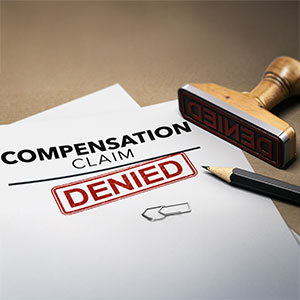Cruise Ships May Be Held Responsible For Sexual And Physical Assaults
Personal InjuryIn the case of KT v. Royal Caribbean Cruises, LTD., the Eleventh Circuit Court of Appeals held that cruise ship operators have a duty to monitor and regulate the behaviors of their passengers, particularly where minors are involved.
Facts
KT was a minor. She was served alcoholic beverages purchased by a group of male passengers until she reached a point of intoxication where she was incapacitated. Thereafter, a sexual assault took place (without more detail being necessary).
The trial judge dismissed her lawsuit for failure to state a claim. The 11th Circuit reversed.
Reasoning And New Precedent
Cruise ship operators know that there are problems with assaults and other crimes aboard their ships committed by passengers. Records of reports also indicate that sexual assaults aboard cruise ships have been a serious problem for a long time.
We know this because cruise ships have been required to maintain records of certain crimes since 2010 (see 46 U.S.C. § 3507(g)(1)(A) and § 3507(k)(1)). Cruise lines are also required to report these complaints to the FBI and the Department of Transportation. Statistics of such crimes are publicly available.
In this particular case, the Court indicated that the crew was able to see that alcohol was being served to a minor and did nothing to stop it. While this case involved a sexual assault, the legal duty that applies here also applies to other crimes where the cruise line either knew or should have known that there was a high risk to passengers that a crime or injury would be enhanced by the sale of copious amounts of alcohol. In addition, the legal duty of the cruise ship includes that they knew or should have known of the need to prevent minors from wrongfully being served alcohol by crew or passengers.
The case also suggested that the crew failed to adequately monitor the public areas of the ship, failed to have adequate policies to prevent consumption of alcohol by minors, and failed to have adequate policies to prevent sexual assaults, including a failure for the crew to intervene and protect a minor who is obviously intoxicated.
The Court further addressed the duty of a cruise line to warn its passengers about the wrongful consumption of alcohol by minors and the danger of violent sexual crimes aboard its ships.
Prior Case Precedent
Below is a list of case law that never went so far as to define the duties of the cruise line the way this case does, but are still relevant and may be necessary to your cruise ship case:
- Guevara v. NCL (Bahamas) Ltd., 920 F.3d 710, 720 (11th Cir. 2019) (“In this circumstance, a cruise ship operator’s liability hinges on whether it knew or should have known about the dangerous condition.”)
- Kermarec v. Compagnie Generale Transatlantique, 358 U.S. 625, 630, 79 S. Ct. 406, 409 (1959) (“[A] shipowner owes the duty of exercising reasonable care towards those lawfully aboard the vessel who are not members of the crew.”)
- If a cruise line owes its passengers a “duty to warn of known dangers” at excursion destinations, id. — areas over which it usually has little (if any) control — a cruise line certainly owes its passengers a “duty to warn of known dangers” aboard its ship. See Keefe v. Bahama Cruise Line, Inc., 867 F.2d 1318, 1322 (11th Cir. 1989).
What Happens Next
It is important to mention that this case does not stand to allow passengers (particularly minors) to act recklessly or irresponsible and then sue the cruise line for failing to protect them. This case was simply about whether KT had a right to sue the cruise line at all. It does not determine whether she will win her case regardless of how bad the problem of assaults on cruise ships may be. A trial or a settlement may be in order depending on the evidence in the case.
Winning Your Case Against The Cruise Line
To have a winning case against the cruise line, you must be able to show that the cruise line was negligent. This could be an active duty (such as the failure to prevent the wrongful consumption of alcohol by minors in this case) or if the cruise line failed to provide an adequate warning of a known risk or danger (such risk or danger must also be foreseeable).
Many defendants will claim that they were unaware that criminal conduct would take place. Considering the statistics cited in this case, the cruise lines are unable to say that assaults and crimes against passengers are unforeseeable.
If you or a loved one has been injured, assaulted, or otherwise become the victim to a crime aboard a cruise ship, you should call to schedule your free case review with a Lakeland cruise ship attorney to discuss the merits of your cruise ship injury lawsuit. There is no obligation and cases are only accepted on a contingency basis. There are no fees or costs unless money is recovered for you.


